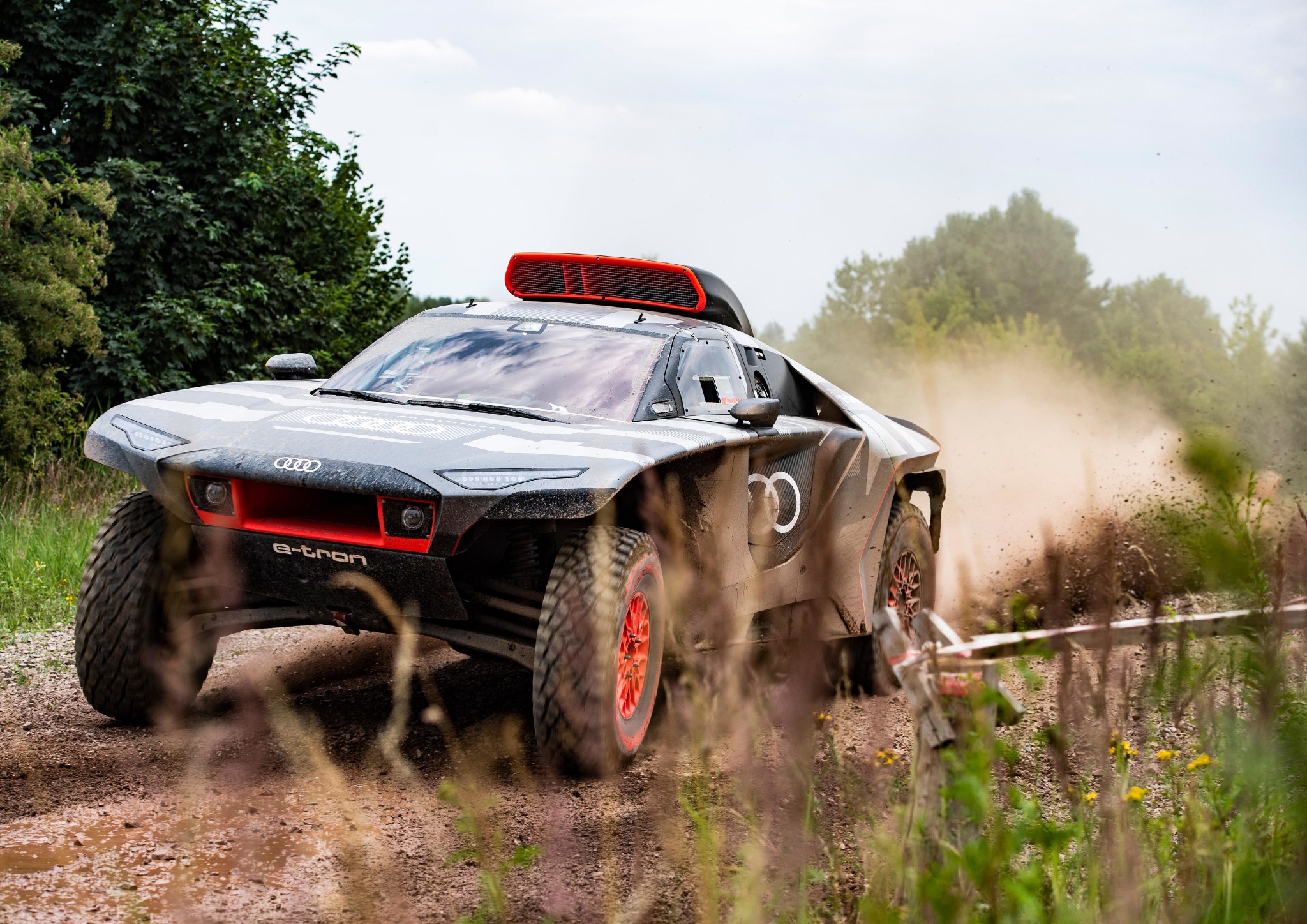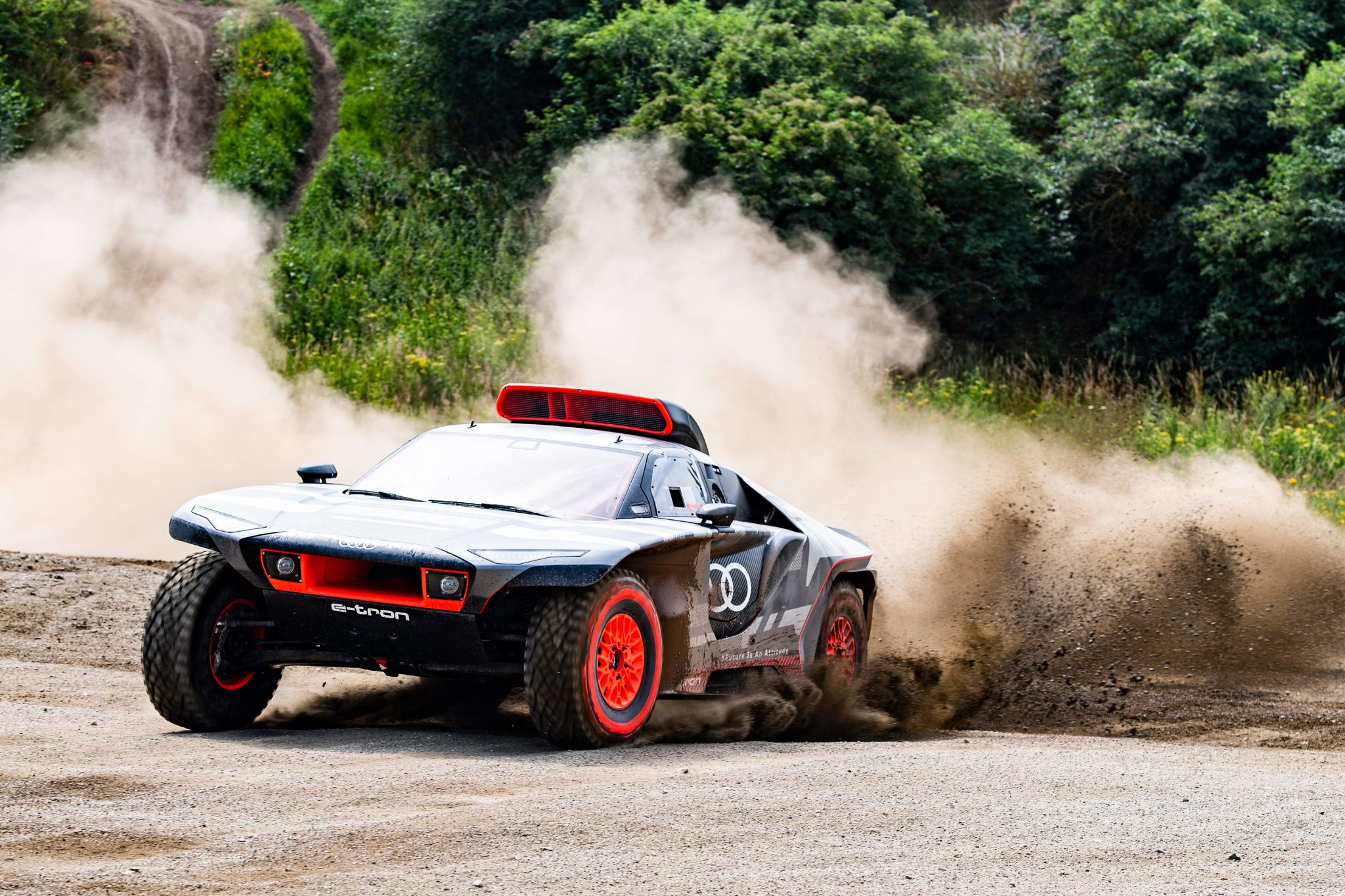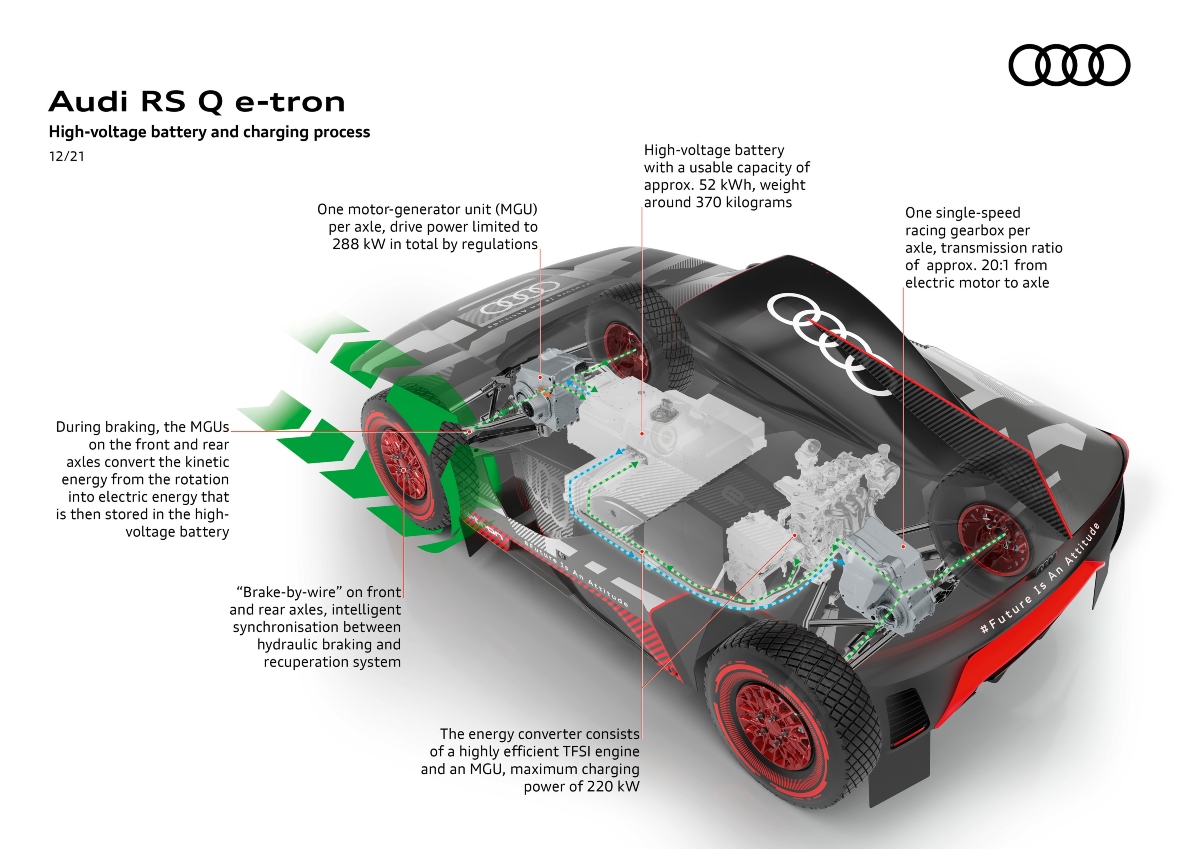Audi RS Q e-tron | An insight into Audi’s hybrid 2022 Dakar Rally challenger
As hybrids make their way into Dakar Rally, we get an insight into the Audi RS Q e-tron
 Audi had announced a few months back that they would be entering the 2022 Dakar with a hybrid car by the name of Audi RS Q e-tron.
Audi had announced a few months back that they would be entering the 2022 Dakar with a hybrid car by the name of Audi RS Q e-tron.Audi has been involved in rallying with their IC engines since the beginning of time, or 1980 to be specific. They have made the Group B rally category famous with the help of their ‘Quattro’ technology and now, they bring the 21st century to Dakar. Audi had announced a few months back that they would be entering the 2022 Dakar with a hybrid car by the name of Audi RS Q e-tron. The RS Q e-tron has taken parts from their Audi Formula E project, which has helped them build the hybrid system for the Dakar car. With that said, let us look at a few of the highlight details about the 2022 Audi RS Q e-tron.
 Parts of the RS Q e-tron comes from various motorsports that Audi is involved in
Parts of the RS Q e-tron comes from various motorsports that Audi is involved inA high-voltage battery
Audi has fitted the RS Q e-tron with a high-voltage battery that has a capacity of around 52kWh and is also fitted with an IC engine from their DTM project which charges the battery in during a rally stage. The battery is located at the centre of the car which in theory, should give the car an excellent centre of gravity.
“With our drive configuration in the RS Q e-tron, Audi is a pioneer in the Dakar Rally,” says Lukas Folie, the high-voltage battery engineer. “Defining the challenges for this type of competition was very demanding. There are simply no empirical values in motorsport for such a concept and for this type of endurance competition.”
The Unknown conditions of Dakar
Audi has expressed that Dakar has one of the most unpredictable environments in the motorsport calendar. The event has stages that comprise hundreds of kilometres, enormous driving resistance in the soft desert sand, plus high outside temperatures. These conditions are very hostile for a battery-electric vehicle to operate in. Moreover, the minimum vehicle weight set by the regulations is at two tonnes, which are extreme values in motorsport.
But, the Audi RS Q e-tron has still managed to come out with a hybrid system that is able to compete in the harsh conditions of Dakar. Check this out, the weight of the high-voltage battery including the cooling medium is around 370 kilograms.
The working of the powertrain
The working of the Audi RS Q e-tron powertrain is quite phenomenal, to say the least. Its innovative drive must always be prepared for all conditions in terms of distances, speeds, the difficulty of the terrain and other factors. The engineers and electronic technicians have programmed algorithms to keep the State of Charge (SoC), i.e. the charge level, within defined ranges depending on the energy demand. The deployment of the battery, along with the charging through the IC engine, has been kept variable as per the requirement of the car. The energy converter can only provide a maximum charging power of 220 kW. In extreme cases, consumption is briefly higher than energy generation but in the long run, it even out the difference.
“Something like this is possible for a limited time,” says Lukas Folie. “But over a longer distance, it always results in a zero-sum game: We then have to regulate the power consumption down so that the battery’s state of charge remains within a corridor. The absolute amount of energy available on board must be sufficient to cover the day’s leg.”
Energy Recuperation
For energy recovery on the move, Audi is relying on tech that is used in Le Mans sports cars and in Formula E, energy recovery during braking. The MGU unit on the front and rear axles of the car is able to convert the rotational movement of the wheels into electrical energy. The aim is to recuperate the maximum possible energy. Now it may sound simple, but the process of energy recovery requires a complex Intelligent Brake System (IBS). It combines the hydraulic braking function with the electric regenerative brake.
 A few details about the Audi RS Q e-tron
A few details about the Audi RS Q e-tronThe RS Q e-tron will open up Dakar to the electric world with a hybrid system for now, but this step shows the change that the automotive industry is going through. Now that you have an idea of what’s coming to the 2022 Dakar, try not to miss the event which starts on January 2. For news and updates from Dakar 2022, stay tuned to evo India!


